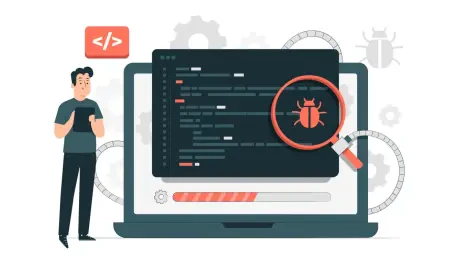The emergence of AI-generated bug reports in open-source software projects is becoming a critical issue, stirring debates about their impact. Daniel Stenberg, the founder of the Curl project, recently expressed concerns over the influx of erroneous AI-generated bug reports submitted via HackerOne. Stenberg describes this surge as a “DDoS attack,” overloading project maintainers with bogus reports that divert resources from genuine security work. The Curl project, vital for data transfer across URLs, exemplifies the broader implications for open-source environments where accuracy and validity in reporting are crucial.
Navigating the Rise of AI-Generated Reports
The escalation in AI-generated bug reports within open-source projects signifies a notable shift that demands attention. With the rise in accessibility of generative AI tools, there has been a surge in submissions from individuals lacking technical expertise to verify bugs manually. This trend poses a significant challenge for maintainers who must now sift through numerous reports that appear legitimate but are ultimately void of factual correctness. The visibility and potential damage of such submissions spotlight the arduous task project leaders like Stenberg face in maintaining their platform’s integrity.
Addressing Validity and Accuracy
A primary concern is the questionable accuracy and reliability of AI-generated reports, with many failing to withstand thorough examination. Throughout a recent event, experts discussed these reports’ deceptive nature, highlighting errors, false information, and fabricated evidence. Often seeming credible initially, these submissions hinder authentic problem-solving processes, causing undue frustration among developers and maintainers.
Safeguarding Open Source Communities’ Integrity
Ensuring the integrity of open-source projects remains a top priority as communities face the impact of low-quality AI-generated submissions. Experts at the event debated the community’s responsibility to protect project integrity, sharing insights into the cultural and operational strain caused by AI errors. The discussion underscored the necessity of maintaining transparency and accountability to preserve these collaborative environments.
Identifying Genuine Vulnerabilities Amid Noise
Participants engaged in workshops to discuss the complexities of identifying authentic security vulnerabilities concealed by erroneous AI reports. Live demonstrations reinforced the skills and strategies maintainers need to discern valid submissions from a growing number of fabricated ones. Audience members actively participated, learning about the tools and methods essential for navigating these challenges effectively.
Innovative Solutions to Counter AI Report Flood
In response to the challenges posed by AI-generated reports, several noteworthy innovations were showcased. Presenters demonstrated recent technological advancements designed to filter and verify bug submissions, providing maintainers with more efficient solutions. These emerging technologies aim to enhance the screening processes and reduce the strain on resources while highlighting the importance of speedy, accurate report identification.
Shaping the Future of AI in Open Source Development
The event closed with a focus on the future role of AI in open-source project development and management. Attendees agreed that recent challenges prompted a reevaluation of how technology is integrated into open-source processes. Progressive discussions illuminated the potential for AI to become a more reliable contributor to software advancements, provided the challenges are addressed thoughtfully. Going forward, the industry remains committed to refining AI integration to avoid burnout among volunteers while fostering a more efficient and productive environment for open-source innovations.









